Engine Oil Service
Motor vehicles are machines just like any other and, therefore, undergo wear and tear. They should be serviced regularly for effective performance and an enhanced lifespan. The engine being the 'heart' of the vehicle, should be taken good care of. Engine servicing is one of the key tips of maintaining your engine. This ensures that your vehicle's engine is always in a good condition.
What's an engine oil service?
An engine oil service is an oil change service in which the used, dirty oil is drained, and the engine is refilled with fresh, clean oil. This process ensures that all moveable engine components are well lubricated and function effectively.
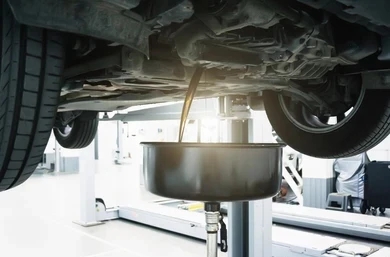
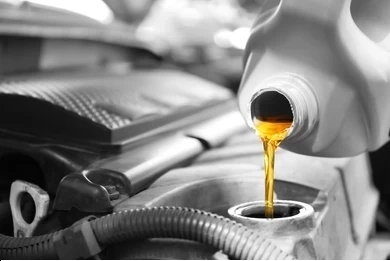
When do I service my engine?
Generally, your vehicle's engine should be serviced at least once a year. However, depending on your vehicle's handbook, some vehicles may be serviced even after two years. Time to service your engine can also be determined by the distance covered, which will vary depending on the quantity and type of engine oil used. A vehicle with a busy schedule covers several miles within a short time and therefore needs to be serviced more often compared to a car that typically stays parked all day.
6 Signs that your engine needs service.
"My Odometer is malfunctioning. How can I determine if my engine needs servicing?"
Always listen to your engine. Be keen to notice tiny details or sounds that your engine might produce. Treat your vehicle like an infant. It cannot speak, but it can send out signals.
Here are some of the signs that your engine needs service:
- )
Dashboard Warning Light.
The growth in technology has brought about development in the motor industry. Modern vehicles,especially hybrid species, have incorporated the new technology. Dashboards have been advanced to send clear warning information to the driver.
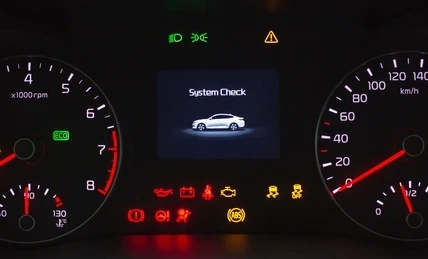
The word 'SERVICE' , 'SERVICE ENGINE SOON' or an icon of a spanner will appear on your dashboard to remind you to service your engine. The dashboard warning light can also appear together with another appropriate warning light such as the 'CHECK ENGINE LIGHT'. This may not be a reminder for a service; instead, it may indicate that your engine is experiencing an issue and needs to be inspected.
- )
Noisy Engine.
Always pay attention to your engine idling. If your engine is noisy or produces unusual sounds, it could be time to get it serviced or a fault that needs to be checked out. This could be an onset of a problem that, if ignored, could become catastrophic.
Strange noises should be addressed immediately by a specialized mechanic. Some noises may be less urgent, but you should be sure of; the exact source of sound, what they sound like, and when the sound occurs. A hissing sound from your bonnet could be a sign of an overheating engine.
- )
Leakages.
If you notice any liquid spillage around the bonnet section of your vehicle, it's important to identify the type of liquid before starting your engine. This will prevent other potential damages, such as the engine knocking, due to running without sufficient oil.
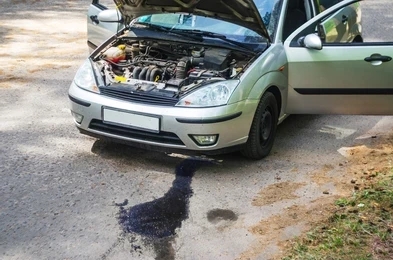
Condensed water from the Air Conditioner may also form puddles underneath your car. This is harmless to your vehicle. The coolant pipes can also burst due to weakness, corrosion,tear and wear, or your engine could be overheating.
- )
Smoky Engine Or Exhaust Fumes.
Smoke from your bonnet or exhaust can be caused by various reasons, some of which could be serious issues that need urgent attention, such as fire outbreak under your bonnet, while others could be less urgent. No matter the urgency, both situations should be addressed.
In the case of fire under your bonnet, you should take the following measures:
- Switch off your engine immediately.
- Pull the bonnet release, but do not open it physically.
- Ensure everyone is out of the car,and safe.
- Warn other road users.
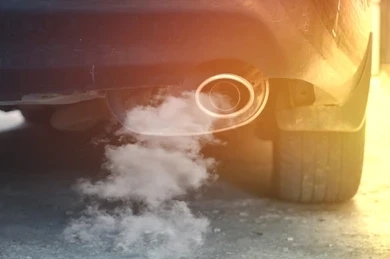
In the case of a less urgent situation, make sure to take note of the following: the source of the fumes,the time when the fumes first appears, its color, and whether your engine is overheating. This information will come in handy when explaining the problem to the mechanic.
- )
Vibrations.
Driving should always be smooth. If you notice that your engine is vibrating while idling,it is likely that your engine mountings are worn out or faulty. The steering wheel can also vibrate due to a loose or worn-out steering belt that needs to be replaced. Your steering rack rubber bushes also need to be checked.
- )
Loss Of Engine Power And Stalling.
Your engine could be losing power or even stalling due to a variety of reasons. These include;
- Faulty fuel system- your fuel pump, fuel filter or injectors could be having issues.
- Wiring problems-There could be a problem with your battery,alternator or spark plugs.
- Faulty ignition system.
- Clogged air filter or a malfunctioning Mass Aif Filter(MAF).
- General mechanical problems.
Regularly servicing your vehicle will save it from stalling and your engine will always be lively.
Importance Of Engine Oil Service.
Why should I service my engine?
The engine is the "heart" of your vehicle since it facilitates its movement. It requires proper lubrication to function effectively and have a longer lifespan. Engine oil is the lubricant that ensures all the moving components of your vehicle are working efficiently. Depending on the engine of your vehicle, there are two types of engine oils: diesel engine oils and petroleum engine oils. Gradually, the oil gets contaminated with dirt,debris, and other particles that are unhealthy for the engine.
Regular engine oil service is important for various reasons, which include:
- Reduces friction, prevents overheating, and minimizes wear and tear.
- Increases the performance of your engine.
- Extends the lifespan of your engine.
- Improves fuel efficiency and reduces emissions.
- Provides room for the inspection of other components of your engine such as worn-out parts, leakages, and loose bolts.
With proper oil service as specified by the manufacturer, you can be sure that your vehicle will be healthy, reliable, and will last longer than expected.
Engine Maintenance Tips.
What makes an engine last longer?
The engine is the 'heart' of a car, and it needs to be well-taken care of in order to keep your car running smoothly. The following tips will not only increase the performance of your engine but will also extend its lifespan.
-
Regular engine oil service.
The servicing of your engine should be done at regular intervals. This will help you get rid of harmful used oil and refresh your engine with clean oil. Engine oil lubricates all the moveable parts of your engine, thus reducing friction and minimizing wear and tear. Draining used oil from the engine gets rid of dirt, debris, and other particles that might damage it. Additionally, you should check your engine oil level on a daily basis.
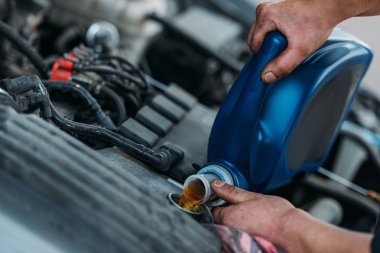
-
Servicing your engine's cooling system.
Proper servicing of your engine cooling system will prevent your car from experiencing overheating problems and radiator leakages. This includes flushing the radiator to remove dirt and deposits that might clog it, cleaning and refilling the coolant reservoir, unclogging the coolant pipe connecting the reservoir and the radiator, and ensuring that the water pump is functioning effectively. In addition to all these, you should also monitor the temperature gauge or the 'Engine Temperature Warning light' on your dashboard.
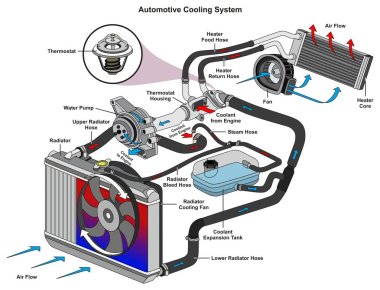
-
Check your Air filter.
Oxygen is essential for the engine's combustion process to occur. To safeguard the engine from unwanted intruders like insects, dust, and sand, an air filter serves as a protective barrier. This ensures proper mixing of air and fuel to support performance. It is recommended to regularly check and clean your air filter and replace it when it becomes worn out to ensure that your engine receives clean air, which allows it to perform better.
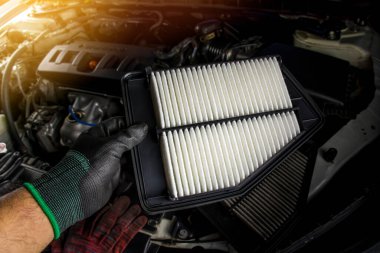
-
Check for any leakages.
Leakages can occur at anytime from your car. This may be due to worn-out seals, Air Conditioning condensation, or damage caused by rocks or uneven bumpy roads. It is advisable to make it a habit to always check your parking spot before driving off. This will help you notice leakages early enough and save your car from damage.
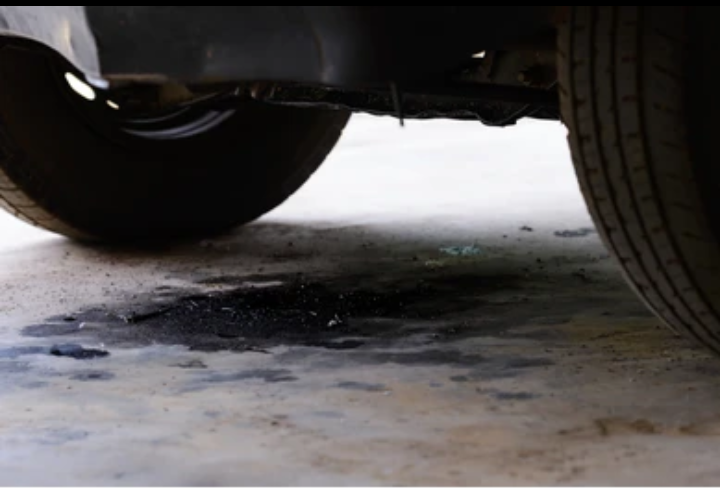
-
Check the condition of your timing belt.
It is advisable to always check your timing belt and replace it when it is worn out. This is because it is responsible not only for controlling the camshafts in your engine but also the opening and closing of valves required for smooth operation. Running with a loose, worn-out or a broken timing belt may end up damaging your engine badly.
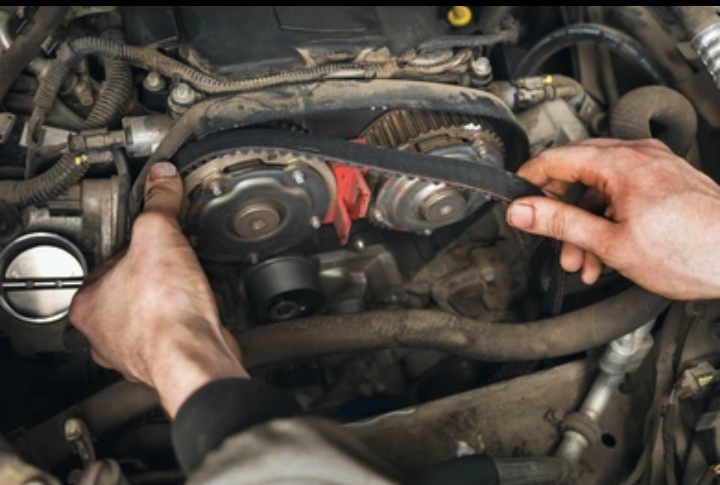
-
Check your fuel level.
Fuel contains particles and deposits that settle at the bottom of the fuel tank over time. Driving on a low fuel level causes your car to absorb these deposits into its fuel system, which can clog it and hinder the engine from receiving the adequate fuel it requires to operate properly. Topping up your fuel tank will save you the cost of replacing the pump and filter.
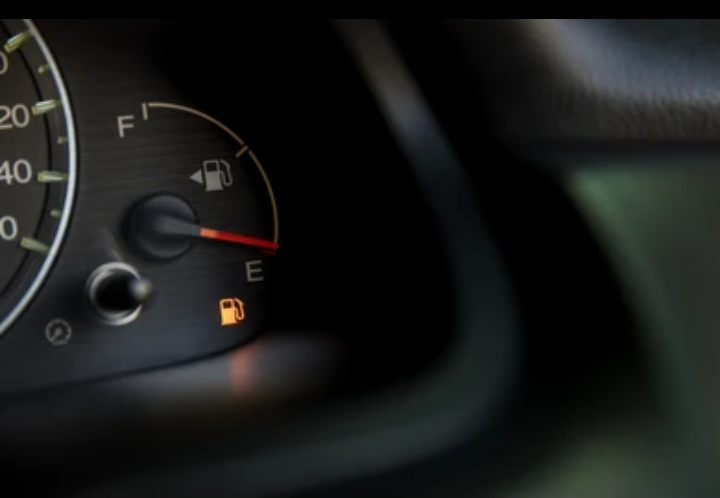
-
Replace clogged fuel filter.
The fuel filter prevents dirt,particles, and other deposits contained in fuel from flowing into the engine. These particles and substances can clog the fuel filter over time. To ensure a consistent supply of clean fuel to your engine, it is important to replace the fuel filter in accordance with your car's specifications.
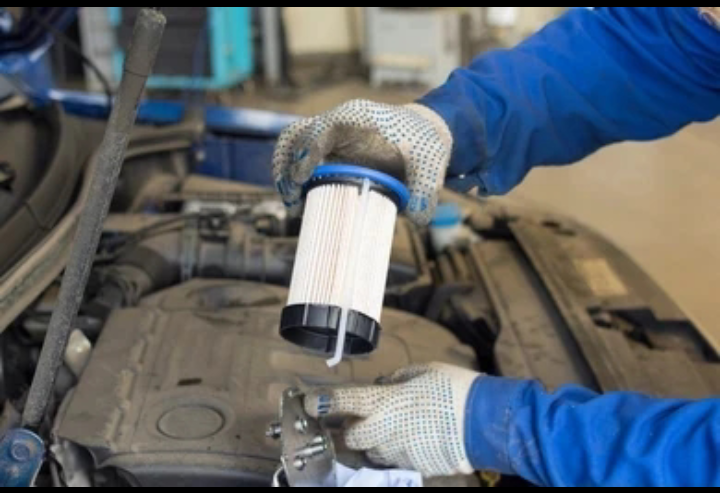
-
Check your Spark plugs and wires.
Spark plugs are responsible for the combustion process in the engine. As their name suggests, they produce sparks that ignite the air-fuel mixture in the combustion chamber. Regular maintenance is important to extend their lifespan and ensure that the engine retains its spark. Depending on their condition,some spark plugs can be cleaned to remove accumulated soot, while worn-out plugs should be replaced. You should keep in mind that neglecting spark plug maintenance can lead to poor engine performance,reduced fuel economy,and even engine misfiring. Therefore, it is advisable to regularly inspect and replace worn-out spark plugs in order to ensure your vehicle runs smoothly and efficiently.
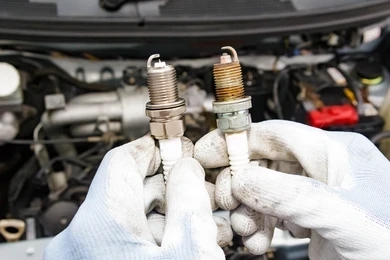
-
Ensure the 'Check Engine light' is sorted as soon as it appears.
The Check Engine light illuminates on your dashboard to inform you of a problem in your engine, which could either be a serious issue or a minor one. However, it should never be assumed, and you should get your vehicle checked by a specialized mechanic immediately.
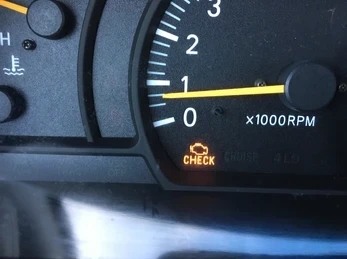
-
Avoid unnecessary improper acceleration.
Engines are designed to run at a constant speed to perform better. Too many variations in the revolution of the engine components can wear it out. Always be sure of your acceleration and don't over-accelerate then come to a stop. Your engine should be accelerated gradually for a longer time.
Engine Failure.
Engine failure occurs when the vehicle's engine mechanically breakdowns and ceases to function properly due to a malfunction. This is one of the most critical issues that can occur because the engine is the "heart" of the vehicle and cannot operate without it. Before the engine fails, it will show a couple of signs that should be addressed immediately in order to save your engine.
These signs include;
Warning Signs of an Engine failure.
How do you know if your engine is failing?
- )
Check Engine Light.
The Check Engine light appears on your vehicle's dashboard when the vehicle's computer system detects an issue with the engine or emissions. This could be due to a variety of reasons, such as a loose gas cap, malfunctioning sensor, or even a more serious problem with the engine or transmission. It is advisable to have your vehicle diagnosed using an OBD Scanner, which can read and interpret the errors in your vehicle's computer system. This will help the mechanic determine the exact problem with your engine.
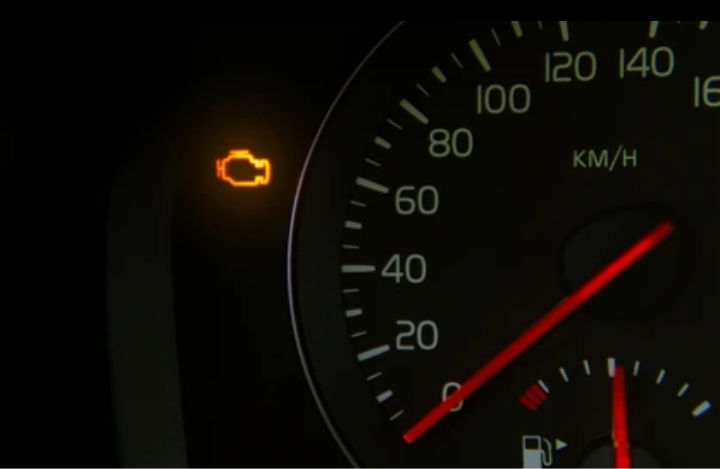
- )
Engine Overheating Problems.
If your vehicle's engine is overheating, it means that its temperature has exceeded the recommended limit. This can be due to a variety of factors, such as a faulty thermostat, a low coolant level, or a malfunctioning cooling system. It is important to address this issue, as the continued operation of an overheating engine can cause serious damage or even complete failure. It is advisable to switch off your engine for about half an hour or more, to allow it to cool before the mechanic can attend to it.
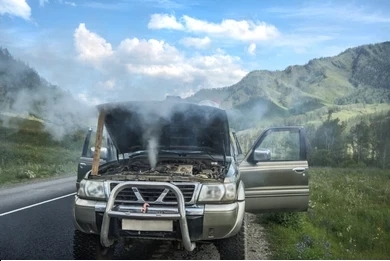
- )
Engine Knocking.
Engine knocking occurs when the air-fuel mixture in the combustion chamber is not burning correctly. This can be caused by various factors such as insufficient fuel supply, dirty fuel injectors, worn out spark plugs or low engine oil pressure. It is important to have your engine checked as soon as possible to prevent further damages that may result from ignorance.
- )
Increased Fuel Consumption.
An abnormal increase in your car's fuel consumption is a sign of a malfunctioning engine component. This may be caused by a faulty fuel line. However,if the 'Check Engine Light' on your dashboard is illuminated,it confirms that your engine has a problem.
- )
Oil Leakage.
Oil leaks from your engine can be a warning sign of a malfunctioning engine part, a worn-out seal or gasket. Ignoring an oil leak can lead to serious damages to the engine, which can be expensive to repair or replace. It is therefore advisable to have any oil leak inspected immediately and repaired by a specialized mechanic.
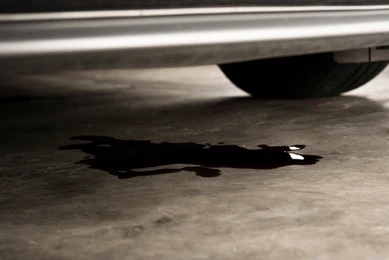
- )
Rough Idling.
A vehicle's engine may experience rough idling due to several potential causes, such as deteriorated or impaired spark plugs, malfunctioning fuel injectors, a clogged air filter, or even a faulty exhaust system. This is a serious issue that needs to be addressed as soon as it arises.
- )
Excessive Engine Vibrations And Noises.
The main cause of engine vibrations is faulty spark plugs or wires. Faulty spark plugs can lead to engine misfires, resulting in vibrations and noise. The noise in question is a knocking sound, which can be corrected by cleaning or replacing the spark plugs. Ignoring this sign can result in costly damages that will be expensive to repair.
- )
Engine Stalling.
Engine stalling can occur during idling or even at high RPM. In both cases,your vehicle's engine could be lacking sufficient fuel supply. This is caused by a faulty fuel system. In case you experience frequent engine stalling, it is advisable to get your vehicle's engine checked immediately.
- )
Smoky Exhaust Fumes.
Smoky emissions from your vehicle's exhaust can be caused by faulty fuel injectors, which could either be adding too much fuel or not letting in enough air through the intake valves. These problems may arise due to issues such as fuel injectors that are leaking, a malfunctioning fuel pressure regulator, or a clogged air filter. If you notice your vehicle is smoking, you should get it checked immediately to avert serious engine problems.
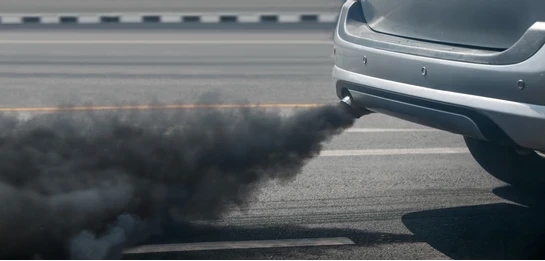
- )
Loss Of Engine Power.
The most common cause of loss of power is a clogged fuel filter. It can also be caused by a faulty fuel pump or fuel line. You should get your vehicle's fuel line checked immediately to prevent further damage to your engine.
- )
Unusual Smell From Your Engine.
An odd smell emanating from your engine could result from various issues, including burning oil or rubber, overheating, or an electrical fault. To prevent engine damage or a breakdown, it is necessary to take your car to a specialized mechanic for inspection.
In conclusion, regular engine oil servicing is a crucial aspect of vehicle maintenance that ensures an extended lifespan, optimal performance, and enhanced efficiency of an engine. By maintaining the proper levels of clean and properly functioning engine oil, vehicle owners and drivers can prevent excessive wear and tear, reduce friction, and protect vital engine components from damage. Neglecting this essential maintenance task can lead to increased fuel consumption, compromised engine performance, and potentially expensive repairs in the long run. Therefore, it is advisable to prioritize routine engine oil servicing as stipulated in the vehicle's manual in order to keep the vehicle running smoothly and extend its lifespan. Remember, a well-maintained engine not only saves on costly repairs but also contributes to a safer and more enjoyable driving experience.